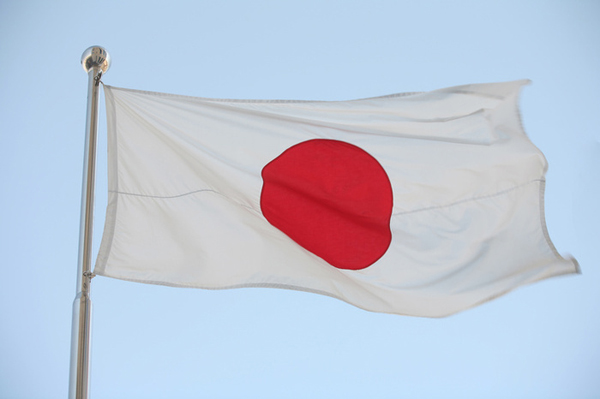Tired of trekking down to the immigration office to renew your visa every year or three? If you’re in Japan to stay and want your legal status to reflect that, you have two options: obtaining permanent residency or naturalizing as a Japanese citizen. Weekender tells you how.
Permanent Residency
UPDATE: As of March 2017, skilled foreigners who satisfy certain criteria are eligible to apply for permanent residency after just one year. Read more here.
A permanent residency (PR) visa lets you stay in Japan indefinitely. Your visa is not tied to your job or spouse and you no longer have to renew it. You’ll also find it easier to qualify for loans from Japanese banks.
To qualify for permanent residency as a single person, you need to have lived in Japan for ten years or more, with five or more of those years on a work visa or other resident visa (working holiday or student visas don’t count).
You’ll also need to prove that you can support yourself without public assistance, have been paying taxes and have had no major trouble with the law. Speeding tickets are fine; unpaid taxes or visa overstays are not.
You can qualify for permanent residency in less than ten years in some cases. If you’re the spouse of a Japanese national, permanent resident or special permanent resident and have been married for three years or longer, you can apply after living in Japan for one year or more.
You can also apply if you’ve been here for five years or more with long-term resident or refugee status. Finally, you can qualify for PR after five years in Japan if the Japanese government decides you’ve made substantial social, economic, cultural or diplomatic contributions to Japan. The criteria for ‘substantial contributions’ are somewhat vague—it’s at the discretion of immigration.
The supporting documents for a PR application vary depending on your situation, so check with immigration or an immigration lawyer in advance to avoid a wasted trip.
As Tokyo immigration lawyer Yoko Majima notes, it’s a lengthy process. “The application for PR or naturalization is not something you can prepare overnight. It’s the result of your past few years in Japan, so sometimes you need to prepare a couple of years in advance.”
Apply for permanent residency at your local immigration office. If you apply yourself, you pay only your time and travel costs to the immigration office, any document translation fees, and 8 000 yen when you receive your PR visa.
You can also hire an immigration lawyer to handle your application. “If you satisfy all the requirements,” says Majima, “there should be no problem doing it on your own. However there are cases where professional advice could increase the chance of getting the application approved.”
Also, since PR doesn’t require an in-person interview at immigration, if you hire an immigration lawyer to handle your application you won’t have to visit immigration at all. “Some people use professional help only for this reason,” says Majima.
Whether you apply for PR yourself or hire an immigration lawyer to do it for you, expect to wait between six to eight months to find out if you’ve been approved.
Although having permanent residency frees you from visa renewals, you won’t be completely finished with immigration. You’ll still need a valid re-entry permit if you travel outside Japan, and when you renew your passport, you’ll have to visit immigration to have them transfer your PR visa to your new passport.
If you are considering switching from Investor or Legal/Accounting Services visa to a PR visa, keep in mind that permanent residents can’t sponsor a foreign housekeeper.
“I know some people who have Investor visa and keep it on purpose even if they qualify for PR, just because they want to sponsor foreign housekeepers until their children are old enough,” Majima notes.
One final caveat: permanent residency for tax purposes is completely separate from permanent residency for immigration purposes. As far as immigration is concerned, you are not a permanent resident until you receive a PR visa.
However, if you’ve lived in Japan for five years or more during the last ten years, the Japanese tax office will usually consider you a resident regardless of your visa status and tax you on your worldwide income. Tax residency in Japan can be complicated; if you are unsure of your status, it is best to talk to a tax lawyer.
Naturalization
If you really want to set down roots in Japan or just never want visit an immigration office again, consider naturalizing as a Japanese citizen. If you’re over 20, are a legal adult in your home country, have been living in Japan for five years or longer and have had no trouble with the law, you can apply for Japanese citizenship.
Naturalization is much more popular with Chinese and Korean residents of Japan than foreigners from the English-speaking world. Ninety percent of the roughly 14,000 foreigners naturalize as Japanese every year are from China or Korea, although the number of applicants from other countries is increasing.
To naturalize as a Japanese citizen, you need to speak Japanese at a third-grade elementary school level. You can choose a Japanese name or opt to have your original name registered in katakana.
If you take Japanese citizenship, you must give up your former nationality. This is where things get complicated: some countries have relatively simple processes for renouncing citizenship; some have no established procedures; some automatically revoke your citizenship if you acquire another nationality; and some refuse to let their citizens go. Check with your embassy in advance.
Your local legal affairs office, not immigration, is the place to apply for Japanese nationality. You can apply yourself if you speak enough Japanese or hire an immigration lawyer. Either way, you will still have to show up for an in-person interview at your local legal affairs office. Expect the naturalization process to take about a year.
Once you have Japanese nationality, you can stay here permanently, run for public office, vote, join the self-defense forces and take on managerial roles in the Japanese public service. If you’re convicted of a criminal offense, you’ll go to Japanese prison rather than face deportation (Weekender does not recommend committing criminal offenses).
Hiring an immigration lawyer:
In Japan, immigration lawyers are a category of legal professional called gyoseishoshi, or ‘administrative procedure specialists’. Gyoseishoshi are the paperwork hotshots of the Japanese legal world. They know exactly what application forms and supporting documents you need, make sure everything is filled in, signed and stamped in all the right places, and, for PR, will even queue up at the immigration office for you.
An immigration lawyer can also advise you if you have any problems with your application. Many of Majima’s clients come to see her because they have concerns about their applications. “Some of the problems can be fixed relatively easily by paying taxes, etc,” she says, but others are harder to resolve. Consulting with an immigration lawyer in advance saves you from having to apply a second time if your first application is rejected.
Whether you go it alone or ask an immigration lawyer to handle your application, Weekender wishes you a smooth sailing in your quest to become a permanent resident or Japanese citizen.
Tokyo immigration lawyer Yoko Majima offers immigration advice in English, French and Japanese.
Minamiazabu Centre 4F, 4-12-25 Minami Azabu, Minato-ku,Tokyo 106-0047
Phone: 03 5421 8056
Text by Annamarie Sasagawa
Read more about the imminent changes to Japan’s visa rules here.









